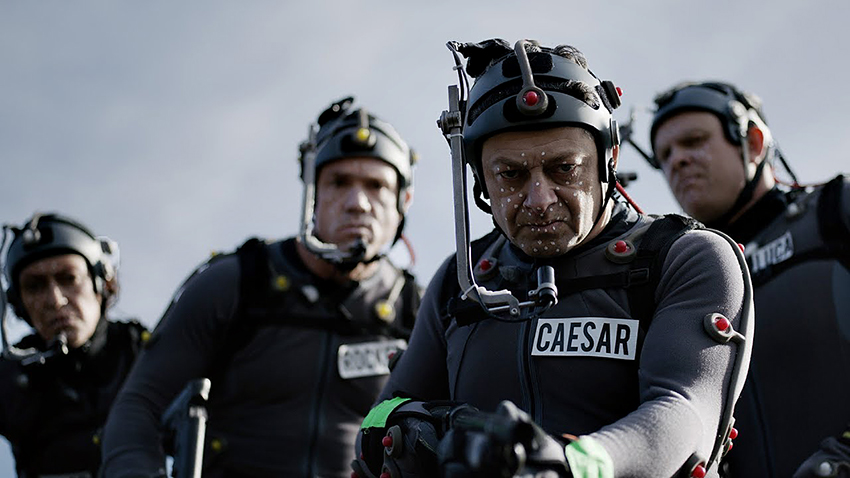With the help of motion capture technology that maps his performances to digital characters, Andy Serkis has played the ring-obsessed Gollum, a gentle reimagining of King Kong, the mysterious Supreme Leader Snoke and the alpha chimpanzee Caesar. This Friday, Serkis’ final performance as Caesar will grace the silver screen in “War for the Planet of the Apes.”
Last Friday, The Daily Texan interviewed Serkis and Weta Digital visual effects supervisor Joe Letteri about the film.
The Daily Texan: Now that the “Apes” trilogy is complete, what do you guys think is its central message?
Andy Serkis: I believe it’s about empathy, and the demise of empathy and the dangers of letting that happen. As soon as we start to think of ourselves as better, or pit on species against another, one belief system against another, then you’re asking for big trouble.
Joe Letteri: (Caesar) understands the fear that drives the conflict and tries to avert it, but every time the fear keeps being stronger.
DT: Andy, Caesar is more human than ever in this film. How did you capture this without over-anthropomorphizing him and was this a big challenge?
AS: It was the biggest challenge. (Director Matt Reeves) worked with me in terms of how to do that. Really, since (“Dawn of the Planet of the Apes”) we looked at his linguistic growth, the first stabs at human language coming from an emotional source. Staccato language. His emotional intelligence comes very close to human, but in terms of expressing that (through language), we didn’t ever want to fall off the tightrope and make it too human so that the character becomes unbelievable.
DT: Joe, “Dawn” pushed motion capture forward by shooting the actors on location. How did “War” push the boundaries?
JL: Just shooting in the rain and the mud wasn’t enough for Matt on this one. We added the snow and the wet and the cold. (We use) pretty delicate equipment, and we’re getting a lot of very subtle, nuanced performances. We were pretty happy with the way the crew was able to keep the gear working in top shape because we’re not recording a picture, we’re recording an emotion. We want to get all that information back so we can turn that around and translate it into our characters.
DT: If you could have one ape companion for the ape-pocalypse, who would it be?
AS: I would definitely choose Caesar. He has such a balanced view on life. Because of the events in this movie, he slightly goes off the rails. But I do think he’s an extraordinary character and is quite noble at heart.
DT: Joe, would you also choose Caesar?
JL: Absolutely. Going back to reading the original script for (“Rise of the Planet of the Apes”), he was going to be the character the whole story was centered around. That journey of him almost thinking he was human and then, over the course of the story, becoming human — it’s a metaphor, a way of allowing us to look at things about ourselves that we like or don’t like.
DT: Andy, your directorial debut, “Breathe,” will premiere later this year, and you are currently working on “Jungle Book.” What have you taken away from the “Apes” films and Matt Reeves as a storyteller?
AS: What’s brilliant about Matt, when he’s shooting in a very technical way with such a huge crew, he always comes down to performance. He will take all the time he needs to make sure the actors are happy and that the scene’s going to work dramatically before any cameras come near it. I really admired him for that.















